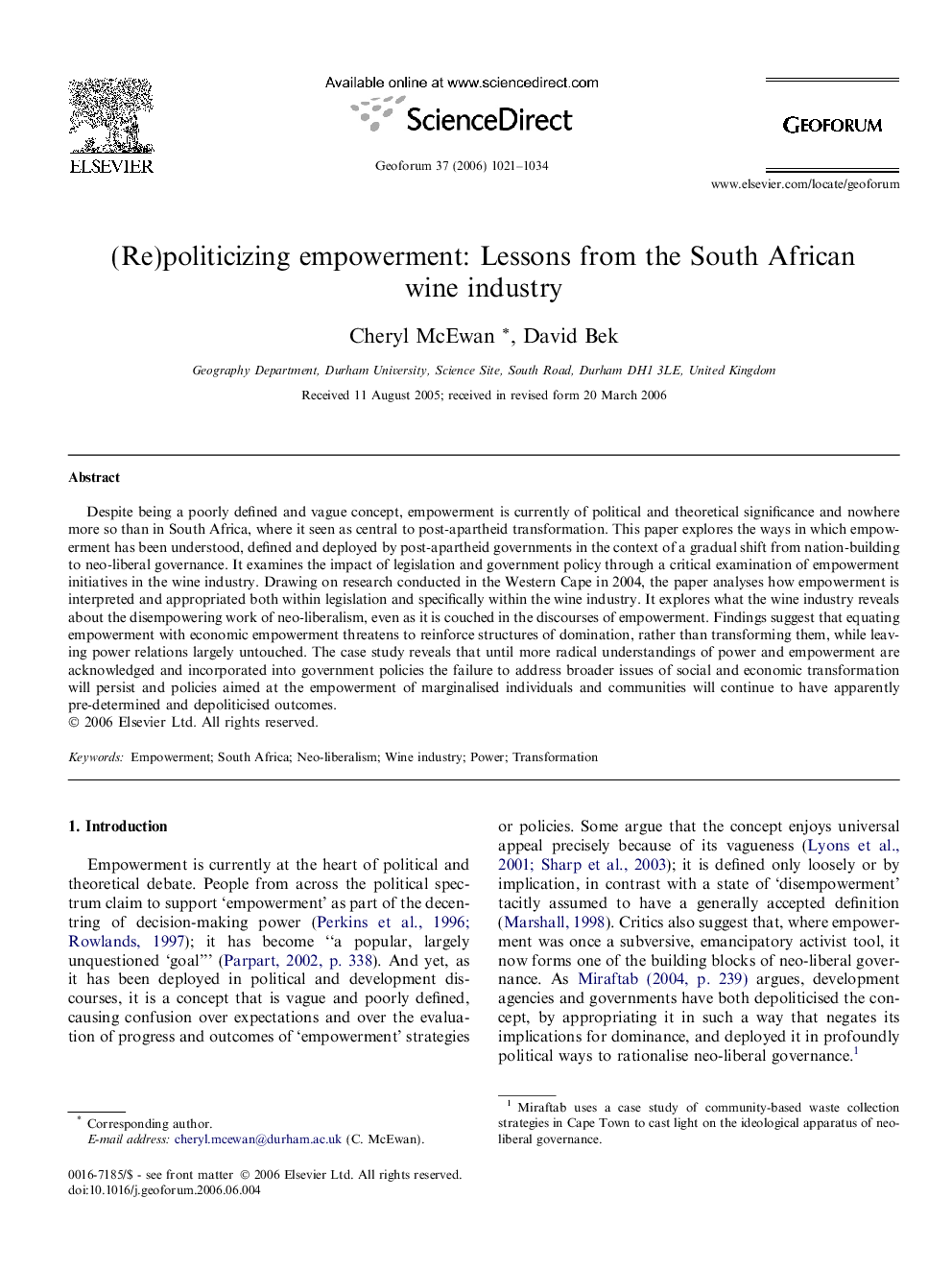| Article ID | Journal | Published Year | Pages | File Type |
|---|---|---|---|---|
| 5075233 | Geoforum | 2006 | 14 Pages |
Abstract
Despite being a poorly defined and vague concept, empowerment is currently of political and theoretical significance and nowhere more so than in South Africa, where it seen as central to post-apartheid transformation. This paper explores the ways in which empowerment has been understood, defined and deployed by post-apartheid governments in the context of a gradual shift from nation-building to neo-liberal governance. It examines the impact of legislation and government policy through a critical examination of empowerment initiatives in the wine industry. Drawing on research conducted in the Western Cape in 2004, the paper analyses how empowerment is interpreted and appropriated both within legislation and specifically within the wine industry. It explores what the wine industry reveals about the disempowering work of neo-liberalism, even as it is couched in the discourses of empowerment. Findings suggest that equating empowerment with economic empowerment threatens to reinforce structures of domination, rather than transforming them, while leaving power relations largely untouched. The case study reveals that until more radical understandings of power and empowerment are acknowledged and incorporated into government policies the failure to address broader issues of social and economic transformation will persist and policies aimed at the empowerment of marginalised individuals and communities will continue to have apparently pre-determined and depoliticised outcomes.
Related Topics
Social Sciences and Humanities
Economics, Econometrics and Finance
Economics and Econometrics
Authors
Cheryl McEwan, David Bek,
